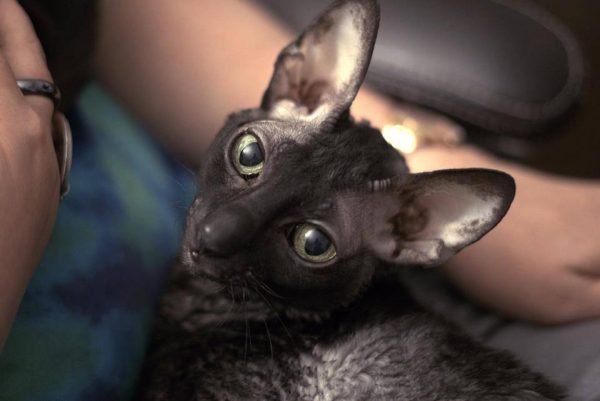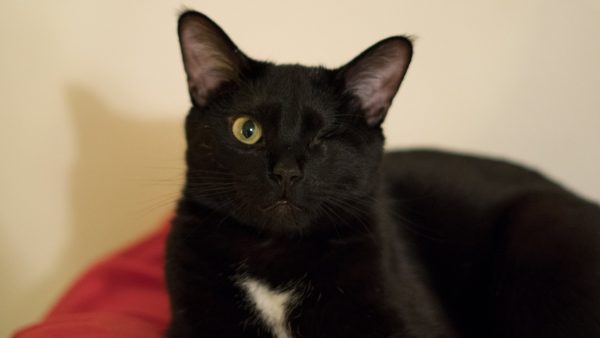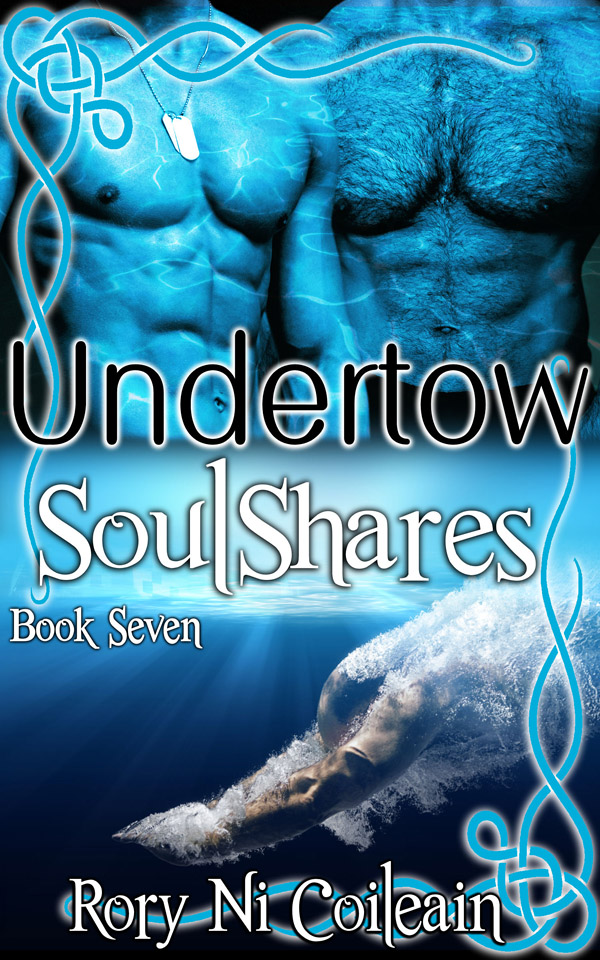Welcome to my weekly Author Spotlight. I’ve asked a bunch of my author friends to answer a set of interview questions, and to share their latest work.
Today, Rory Ni Coileain – Rory is one of my dearest queer romance writing friends – we met at Rainbow Con in 2015, and she’s been a sounding board, beta reader, and friend ever since.
Thanks so much, Rory, for joining me!
J. Scott Coatsworth: If you could sit down with one other writer, living or dead, who would you choose, and what would you ask them?
Rory Ni Coileain: So hard to choose… I’d have to say Ursula K. LeGuin. But even assuming I could do anything other than babble incoherently and/or faint dead away, I honestly couldn’t tell you what I’d ask her. I think I’d probably sit happily at her feet and place my hope in the powers of osmosis.
JSC: When did you know you wanted to write, and when did you discover that you were good at it?
RnC: Gosh. I started writing stories when I was six, I think – though I wrote a fan letter to National Geographic when I was five, they did an article on sharks that I thought was really cool. As for when I discovered I was good at it…? I think it’s fair to say that that’s something I need to keep re-discovering on a regular basis.
But winning a national writing contest my senior year in high school with a Star Trek fanfic probably set my feet on the path. (It drove my English teacher crazy, because he insisted that science fiction was a worthless genre; I only persuaded him to let me read Stranger in a Strange Land by promising I would also read The Sun Also Rises and write a paper on the ethos of the “ideal Hemingway male”. Blargh.
JSC: Were you a voracious reader as a child?
RnC: It was impossible to keep me in books. I got my first library card when I was two and a half years old – one of my earliest memories was of my parents taking me to the library when I was about two. I remember seeing it from up high – I was on my dad’s shoulders. And I remember them telling me what the library was, a place where you could come and take home as many books as you wanted.
And then they went to leave, and I pitched my one and only public temper fit, right there in the library. They’d told me I could take books home from the library, and I wanted my books! So they explained to me that I needed a library card, and I couldn’t get one of those until I could sign my name. So I was temporarily mollified, and we went home.
And then I pestered them until they taught me to print a highly abbreviated version of my name—it took three letters. And we went back to the library, and I signed for my card – I remember standing on tiptoe to put the form on the librarian’s desk, and I still couldn’t see the top of the desk.
JSC: How would you describe your writing style/genre?
RnC: My favorite subgenre to write in within m/m romance is what I think of as mythic or legendary fantasy. I love playing with a culture’s deep stories, the stories that reach into us on levels we aren’t even consciously aware of. I guess you could call me a subversive, that way.
Of course, right now I’m working on book eight of a nine-book contemporary urban fantasy series – life, and contracts, are what happen while you’re making other plans. But I have ideas on the back burner that will take me back to the world of Russian legend I first looked into in WOLF, BECOMING, and I’d love to try a book set in the jungle world of the Lamiae.
JSC: What action would your name be if it were a verb?
RnC: ? It’s hard to choose. I’m pretty sure it would be walking into a room and immediately forgetting why I’m there, but going on the Internet at 8 p.m. to research dates of construction of New York City landmarks and finding myself watching videos of Tibetan throat singing at 3:26 a.m. is also a strong contender.
JSC: What was your first published work? Tell me a little about it.
RnC: Tell me a little about it. That’s a harder question to answer than you’d think. The first work that I submitted for publication that actually got published was a short story I wrote in response to a manuscript call for BBW stories. I wrote the story as kind of an experiment, to see if I could write a story in a genre I’d never tried to write in before, to someone else’s specs and on their deadline. I finished on time and under word count, sent the story off, and then heard nothing. So I moved on, and eventually submitted a different short story, an Arabian-nights sort of shapeshifter story, to a different anthology.
While I was waiting to hear back on that one, I finally heard back on the BBW story, something like eight months after I submitted it – turned out the project had gone through several editors, they were finally ready to start on it, and was my story still available?
The upshot being, the first story I sent out ended up being the second one to make it to publication, because the anthology Serpentine was in came out before the BBW anthology. But then the publisher who picked up the BBW story bought the first four SoulShares novels, too. So it’s complicated. *laughing*
JSC: What pets are currently on your keyboard, and what are their names? Pictures?
RnC: That would be Corn-bred’s Grace O’Malley the Pirate Queen of Ireland (Gracie for short) and Captain Jack Harkness (Jack, Dammitcat, or Galumph for short)
JSC: What’s your writing process?
RnC: I’m in the process of evolving from a pantser to a plotter, mostly because I’m working on book eight of a nine-book series and all those little details I swept under the rug in the first seven books and figured I’d deal with ‘later’ are turning into a great big lump under the carpet. Sooooo many loose ends to tie up….
JSC: What’s your greatest weakness as a writer?
RnC: Overediting my own work as I go. I’m literally incapable of writing rough drafts, and everything has to be perfect before I can move on.
Then I come back to it the next night, re-read the previous night’s work, and have to change half of it. I’m not sure whether to attribute this to a persnickety Muse or a retentive personality, but I’m sure there are plenty of people out there (like, all my editors ever) who would be happy to answer that question.
JSC: What are you working on now, and when can we expect it?
RnC: STONE COLD, SoulShares #8. And I’d like to say May, but if my Muse keeps on being uncooperative it might take a little longer, because I’m going to have to take time out to audition a new Muse.
And now for Rory’s new book: Undertow:
Rhoann Callte, Rhoann Half-Royal, is an impossible Fae. Shape-shifter, he carries the blood of Fae water elementals and has a once-in-a-generation healing gift. Which is his blessing, or his curse, depending on how you look at it – his gift is needed among the exiled Fae of the Demesne of Purgatory, and he’s coerced from his beloved solitude and sent on a one-way trip to the human world.
Vietnam veteran Mac McAllan has been through hell in the last few months, and not just because his new C-leg isn’t performing up to spec. He and his partner of 34 years, stocky bald muscle bear Lucien de Winter, were working at Purgatory when what the owner said was a gas explosion collapsed the building – and put Lucien into a coma back in August. Now it’s October, and an impossibly handsome stranger says he can heal Lucien. But there’s always a price…
A Fae who wants only to be left alone, SoulShared with a human who’s already found the love of his life… and the Marfach testing their incomplete bond, seeking the key to its watery prison. What could go wrong?
Buy Links
Excerpt
“What is it you think you can do for him, then?”
Rhoann guessed from the ‘him’ that Rian was speaking for himself, rather than for the sensually disheveled male beside him. “Use my gift. Heal his hurts done by magick, whether that magick was living or elemental.” He was starting to feel like an echo-drake, its pale translucent wings vibrating to give back the last sound it heard, over and over again. “Tell me how his speech was stolen, and I will do what I can.”
Cuinn and Rian exchanged a glance, and when Rian spoke again, it was in Cuinn’s tone, with the careful consideration of a translator and a jaw grimly set. “I’m paying for the sins of four thousand Loremasters, and I’m fucking fortunate to have been left alive. When we withdrew magick from the human world, right before exiling the Marfach here, we tried to talk the daragin, the tree folk, and their indwelling Gille Dubh into coming into the Realm with the rest of the Tirr Brai, the Folk of Power. But they refused. Said they were too attached to the human world, and they’d be safe enough from the Marfach. We couldn’t wait. We took the magick. And without it, the daragin were no more than trees, and their Gille Dubh had no life at all.”
More stories. Though his mother had told the stories of the tree folk and their spirits as animal tales, along with tales of the great stags of the forest and the feral unicorns. “Go on.” He wasn’t sure which of the two Fae on the bed to look at when he spoke.
“The last Fae to come through the Pattern before you, Fiachra Dubhdara, is an adhmacomh — a dark Fae, maybe related to the Gille Dubh somehow. And he came to the attention of a darag.”
“How? If they were all destroyed?”
This time Conall answered. “Remember those places where magick’s returning to the human world? When magick touches the roots of a darag, the darag draws in the magick. It returns to life, and its Gille Dubh revives along with it.”
“And they’re pissed to the wide.” Rian and Cuinn were both nodding, though only Rian spoke. “When they noticed Fiachra, they noticed all of us. And they remember exactly what the Fae did to them, like it was yesterday. Which, for a lot of them, it was.” Cuinn put a hand to his throat, his grimace one of frustration. “And, well, one of them found me. And presented the grievances of their two races to the last of their executioners.”
“And this silence that has been done to you is your punishment?”
Even Conall was staring, green eyes wide, as if he’d never heard the tale the two males told. From Cuinn’s expression, it was not a tale he ever told if he could help it.
“Yes.” Cuinn sighed — that much, at least, he could still do for himself. “I tried to tell them our side of the story. But they weren’t much disposed to listen, and I can’t say as I blame them. And when they decided they were done listening to me talk…” He shrugged, a tight uncomfortable gesture. “The darag told me no one would ever have to listen to me again.”
Rian’s throat squeezed Cuinn’s words tightly, and the moment the Prince finished speaking he turned and took his consort into his arms, holding him close. And even with a Water Fae’s natural empathy stunted to a pale hint of the true gift by Rhoann’s mixed blood, his own eyes stung with someone’s tears, his own hands trembled with someone’s anger.
Whose, he could not tell. They were one, the two blond Fae. There could be no doubt of that. Rhoann supposed he should be repelled by the thought. Frightened, even. Their closeness was like nothing he had ever seen… although in a way, Lasair and Bryce had been the same, very nearly thinking one another’s thoughts.
Rhoann should have been afraid. But he was not.
Rhoann’s thoughts were of a weeping human male, with one leg of flesh and the other of magick.
Conall’s touch on his arm startled him out of his thoughts. The red-haired Fae leaned in, grimacing as Rhoann flinched. “I’m not going to bite you. Can you tell what the damned tree did to him?”
Rhoann felt his face grow hot. “I have been bitten by dire sharks with four more rows of teeth than you have. The prospect of being bitten by you is not terribly alarming.”
Rhoann’s thoughts raced as Conall shook his head. He had had little opportunity to use the gift slumbering within him, and despite Aine’s confidence in him, he was not sure where or how to begin. Oh, Miren had been stung by a stoneserpent once, its Earth magick hardening her flesh. And it seemed he had to restore wounded gossamers, rescued from the searching, clinging strands of night-mare nests, once every double hand of days or so. He knew how to heal. But neither sort of healing struck him as good practice for diagnosing the damage done to a Loremaster by an enraged tree.
Of course, the actual healing, being a thing of his elemental nature, involved water. And his elemental nature was a secret he was not yet ready to reveal to anyone on this side of the Pattern.
Still, he had to start somewhere. “Once I touch him, I should be able to figure out what was done to him.”
“Haven’t seen anyone quite so reluctant to touch me since I propositioned Sir Galahad.” Cuinn’s words, spoken by Rian, were muffled in Cuinn’s neck.
“He’s fictional,” Conall pointed out.
“Says you.”
Rhoann had more or less given up trying to work out who was telling him what, and fully appreciated that he might never know who Sir Galahad was. This bothered him not at all. He had a job to do, and all he wanted was to do it, and be done, and be elsewhere. Away from other Fae.
Author Bio
Rory Ni Coileain has been writing almost as long as she’s been reading, and reading almost as long as she’s been talking. She majored in creative writing in college, back when Respectable Colleges didn’t offer such a major, so she designed it herself—being careful to ensure that she never had to take a class before nine in the morning or take a Hemingway survey course.
She graduated Phi Beta Kappa at the age of nineteen, sent off her first short story to an anthology being assembled by an author she idolized, received the kind of rejection letter that fuels decades of therapy, and found other things to do for the next thirty years or so, including nightclub singing, working as a volunteer lawyer for Gay Men’s Health Crisis, and studying ballet in New York City, until her stories grabbed her by the shirt collar and announced they were back.
Now she’s a legal editor, a soprano in her church choir and the St. Mark’s Cathedral Choral Society (sometimes against her better judgment and common sense, such as when they’re singing Mozart, because Mozart apparently didn’t like second sopranos very much and thought they all should be firsts), the mother of a budding film-maker, and amanuensis to a host of Fae, Gille Dubh, and shapeshifters who are all anxious to tell their stories, and some of whom aren’t very good at waiting their turns.




